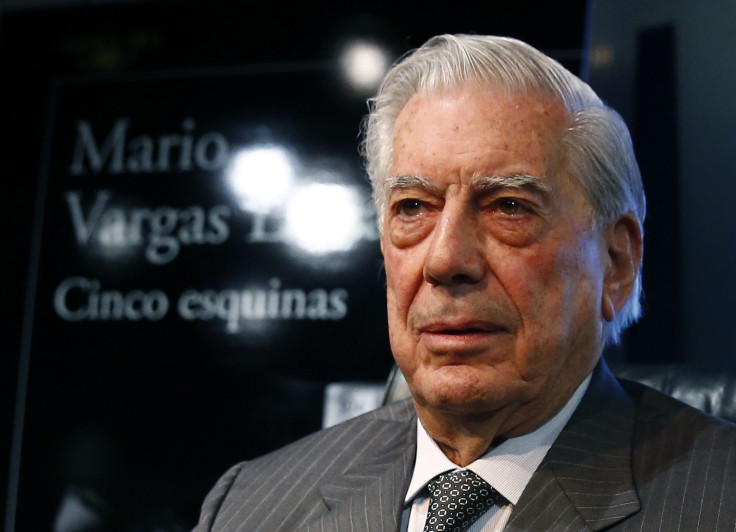
The Library of Congress will present its Living Legend Award to Mario Vargas Llosa, the renowned Peruvian novelist, journalist, public intellectual and political commentator, at the Library’s Coolidge Auditorium on Monday, April 11. The presentation will be made after an afternoon symposium in his honor, featuring acclaimed novelists Jane Smiley, Thomas Mallon, Alonso Cueto and Álvaro Enrigue, as well as distinguished scholars on Latin American literature Efraín Cristal, Rubén Gallo, Julio Ortega, Gwen Kirkpatrick and Charlotte Rogers. Edith Grossman, who has translated many of Vargas Llosa’s novels into English, will join in the conversation.
The evening award ceremony will include tributes from Peruvian Ambassador Luis Miguel Castilla and Acting Librarian of Congress David S. Mao. Vargas Llosa will appear in an interview conducted by Marie Arana, who holds a distinguished chair at the John W. Kluge Center of the Library of Congress.
The Living Legend Award honors those who have made significant contributions to America’s diverse cultural, scientific and social heritage. “Mario Vargas Llosa has brought to life the history and character of the Latin American people in memorable literature that has been translated into many languages around the world,” Mao said. “The Library of Congress is proud to honor him and his work.”
Vargas Llosa was born in Arequipa, Peru on March 28, 1936. He is one of Latin America’s most prominent writers, and one of the authors in the forefront of the literary movement of the 1960s known as the Latin American Boom. In the words of literary scholar Randolph D. Pope, Vargas Llosa “can tell a story and create a world with the apparent ease of a 19th-century master. He holds the attention of the reader and fires the imagination as Balzac, Dumas, or Victor Hugo did in their time.”
Vargas Llosa has written prolifically throughout his life and has been a highly influential figure on the political and cultural stage of the Hispanic world for more than half a century. His plays have been performed in theaters from Lima to Madrid. His books have been translated into more than 30 languages, and his essays and critical works have greatly contributed to dialogues about literature, society and the complex political and cultural realities of Latin America. Along with his fellow authors Gabriel García Márquez, Julio Cortázar, and Carlos Fuentes, Vargas Llosa’s writings revolutionized the literary world by expanding the possibilities of the novel, and his contributions helped place Latin American literature on the world literary map. His other honors include the Nobel Prize, the Miguel de Cervantes Prize, the Príncipe de Asturias Prize, the Leopoldo Alas Book Prize, the National Prize for Best Novel in Peru, the Instituto Ítalo-Latino Americano de Roma Prize, the Ritz Paris Hemingway Award, and the PEN/Nabokov Award.
The first Living Legend awards were given in 2000 during the Library’s bicentennial (1800-2000) celebration. Recipients through the years have included artists, writers, filmmakers, physicians, entertainers, sports figures, public servants and musicians who have enriched the nation through their professional accomplishments. Katharine Graham, B.B. King, David McCullough, Gordon Parks, Marta Casals Istomin, Alan Lomax, I.M. Pei, Sally Ride, Martin Scorsese, Yo-Yo Ma and Mario Andretti are among the more than 100 recipients.
The Library of Congress, the largest library in the world, holds more than 162 million items in various languages, disciplines and formats. The Library serves the U.S. Congress and the nation both on-site in its reading rooms on Capitol Hill and through its website at loc.gov. The event (and the symposium) will be free and open to the public, but those who wish to attend must RSVP by emailing specialevents@loc.gov or by calling (202) 707-1616.
© 2025 Latin Times. All rights reserved. Do not reproduce without permission.




